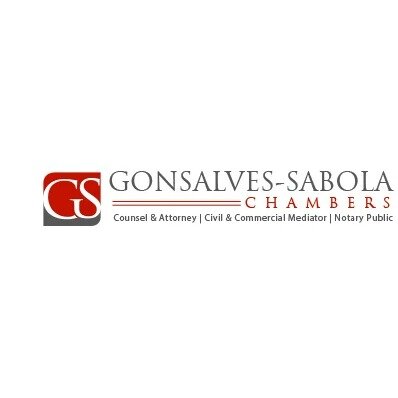Best Acquisition / Leveraged Finance Lawyers in Bahamas
Share your needs with us, get contacted by law firms.
Free. Takes 2 min.
Or refine your search by selecting a city:
List of the best lawyers in Bahamas
About Acquisition / Leveraged Finance Law in Bahamas
Acquisition and leveraged finance refers to the practice of raising funds, often through borrowed money, to acquire businesses, assets, or investments. In the Bahamas, this area of law involves complex transactions that typically include cross-border elements, regulatory considerations, and involvement from both local and international banks. The Bahamas, known for its robust financial services sector, provides a sophisticated framework for acquisition and leveraged finance, guided largely by English common law principles, local statue, and regulatory oversight. These financial arrangements are commonly used by private equity firms, corporations, and investors seeking to expand or restructure their holdings.
Why You May Need a Lawyer
Legal expertise is crucial in acquisition and leveraged finance in the Bahamas due to the complexity and high value of the transactions. You may need a lawyer if you are:
- Acquiring a Bahamian business or asset and require finance to complete the transaction.
- Securing loans or other forms of credit, especially with cross-border parties.
- Involved in structuring or negotiating debt facilities, security packages, or loan agreements.
- Ensuring compliance with Bahamian regulations and laws, including anti-money laundering requirements.
- Dealing with regulatory approvals or exchange control regulations from the Central Bank of The Bahamas.
- Engaging in due diligence to assess the risks and obligations linked to the financing transaction.
- Resolving disputes arising from breaches in finance documents or loan agreements.
A lawyer can provide strategic advice, draft and review documentation, facilitate negotiations, and coordinate with regulatory bodies to ensure your transaction is compliant and protected under Bahamian law.
Local Laws Overview
The Bahamian legal landscape for acquisition and leveraged finance is rooted in English common law, supplemented by specific local statutes and regulations. Some key features include:
- Companies Act: Governs the incorporation, management, and acquisition of Bahamian companies.
- Central Bank of The Bahamas Exchange Control Regulations: Control the movement of funds into and out of the country, impacting how foreign loans are structured and approved.
- Debenture and Security Laws: Stipulate requirements for taking security over assets, registering charges, and enforcing rights as a lender.
- Stamp Duties and Taxation: Impact the cost and structuring of finance agreements, particularly when assets or shares are transferred.
- Anti-Money Laundering Regulations: Require robust due diligence and reporting to prevent illicit financial flows.
- Insolvency Laws: Provide the procedures and liabilities in the event of a borrower default or insolvency.
Given the significant regulatory and documentation requirements, legal guidance ensures compliance and minimizes transactional risks.
Frequently Asked Questions
What is acquisition finance?
Acquisition finance is the means of raising capital to acquire a business or assets. In the Bahamas, this may involve bank loans, debt issuances, or private equity funding, often secured by the acquired assets or shares.
What is leveraged finance?
Leveraged finance involves using a significant amount of borrowed money relative to equity to fund an acquisition or investment, increasing potential returns but also risk.
Do I need local legal representation for a Bahamian financing deal?
Yes, local legal representation is often essential for ensuring compliance with Bahamian laws, especially regarding regulatory approvals, exchange controls, and proper documentation.
What types of security can be taken in Bahamian acquisition finance?
Common forms of security include charges over shares, mortgages over real estate, debentures over assets, and pledges of receivables, subject to proper registration and regulatory compliance.
Are there restrictions on foreign lenders in the Bahamas?
Foreign lenders must comply with exchange control regulations and may need specific approval from the Central Bank of The Bahamas for making or receiving loan payments.
How are acquisition finance transactions typically structured?
Transactions are structured via negotiated loan agreements, security documents, inter-creditor arrangements, and compliance with local corporate and regulatory requirements.
What regulatory approvals are necessary?
Depending on the transaction, you may need approval from the Central Bank of The Bahamas, the Bahamas Investment Authority, or other relevant regulators, particularly for cross-border finance.
What are the tax implications of acquisition finance in the Bahamas?
The Bahamas has favorable tax laws but stamp duties and fees may apply to transfers of shares, real estate, or security registrations. Specific advice is recommended.
What happens if a borrower defaults?
In case of default, lenders may enforce security, initiate insolvency proceedings, or pursue legal remedies under the terms of the agreements and local insolvency laws.
Can financing agreements be governed by foreign law?
Yes, parties can choose a foreign governing law, but certain aspects, especially enforcement of security over Bahamian assets, must comply with Bahamian law.
Additional Resources
- The Central Bank of The Bahamas - Exchange Control Department
- Bahamian commercial banks and financial institutions
- The Bahamas Investment Authority
- The Bahamas Financial Services Board
- The Registrar General's Department - Companies and Land Registries
- Bahamas Bar Association for referrals to qualified lawyers
- International finance and legal publications specializing in the Caribbean
Next Steps
If you are considering an acquisition or leveraged finance transaction in the Bahamas, consider the following actions:
- Identify your objectives and the structure of the proposed transaction.
- Gather all relevant documents and background information regarding the target company or asset.
- Consult a qualified Bahamian lawyer with experience in acquisition and leveraged finance law to assess options and risks.
- Obtain preliminary advice regarding regulatory, tax, and documentary requirements specific to your transaction.
- Work with your lawyer and financial advisors to structure and negotiate the necessary agreements.
- Ensure compliance with all local laws, including registration, regulatory consent, and due diligence obligations.
- Proceed confidently knowing your transaction is legally sound and protected.
Taking legal advice early in the process can help you avoid costly mistakes and ensure the success of your acquisition or financing in the Bahamas.
Lawzana helps you find the best lawyers and law firms in Bahamas through a curated and pre-screened list of qualified legal professionals. Our platform offers rankings and detailed profiles of attorneys and law firms, allowing you to compare based on practice areas, including Acquisition / Leveraged Finance, experience, and client feedback.
Each profile includes a description of the firm's areas of practice, client reviews, team members and partners, year of establishment, spoken languages, office locations, contact information, social media presence, and any published articles or resources. Most firms on our platform speak English and are experienced in both local and international legal matters.
Get a quote from top-rated law firms in Bahamas — quickly, securely, and without unnecessary hassle.
Disclaimer:
The information provided on this page is for general informational purposes only and does not constitute legal advice. While we strive to ensure the accuracy and relevance of the content, legal information may change over time, and interpretations of the law can vary. You should always consult with a qualified legal professional for advice specific to your situation.
We disclaim all liability for actions taken or not taken based on the content of this page. If you believe any information is incorrect or outdated, please contact us, and we will review and update it where appropriate.
Browse acquisition / leveraged finance law firms by city in Bahamas
Refine your search by selecting a city.

















